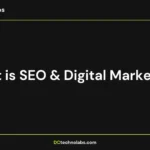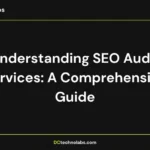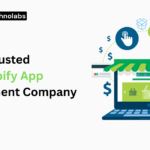
In 2024, the digital landscape continues to evolve, making it essential for small businesses to establish an online presence. A website is more than just a digital business card; it’s a powerful tool that can drive growth and success. In this blog, we’ll explore the top benefits of a website for small businesses, illustrating why it’s crucial to have one.
Table of Contents
- Establishing an Online Presence
- Enhancing Credibility
- Accessibility and Convenience
- Reaching a Wider Audience
- Improving Customer Engagement
- Showcasing Products and Services
- Increasing Sales Opportunities
- Cost-Effective Marketing
- Gathering Customer Insights
- Building Customer Trust
- Supporting Business Growth
- Staying Competitive
- Grow Your Small Business with DC Technolabs
- Conclusion
Establishing an Online Presence
Having an online presence is no longer optional. It’s a necessity. In today’s digital world, potential customers often search online before deciding where to spend their money. A website serves as the digital storefront for your business, open 24/7, and accessible to anyone with an internet connection. This continuous availability allows potential customers to learn about your services, contact you, and even make purchases at their convenience.
Imagine your website as a virtual shop that never closes. Customers can visit your website at any time of day to browse your offerings, learn more about your services, and make wise decisions. This round-the-clock availability can significantly enhance customer satisfaction and engagement. Moreover, a website can provide detailed information that might not be possible to convey through other means, such as social media or print ads.
Key Points:
- 24/7 Availability: Your business is always open online.
- Wide Reach: Accessible to anyone with internet access.
- Detailed Information: Offers in-depth specifics regarding your goods and services.
Enhancing Credibility
A professional website significantly boosts your business’s credibility. In the eyes of potential customers, a well-designed website signals that your business is legitimate, reliable, and established. Customers are more likely to trust a company with a well-designed website that provides clear information about its products or services.
A website allows you to showcase your business in the best possible light. Including customer testimonials, case studies, and reviews on your website can further enhance your business’s reputation. These elements serve as social proof, demonstrating to potential customers that others have had positive experiences with your business.
Key Points:
- Professional Appearance: A well-designed website looks credible.
- Customer Testimonials: Builds trust through positive feedback.
- Social Proof: Case studies and reviews demonstrate reliability and expertise.
Accessibility and Convenience
One of the primary benefits of a website for small businesses is accessibility. Unlike a physical store with set hours, a website is available around the clock. This means customers can access information, make inquiries, or purchase products anytime they want, without being restricted by business hours.
In today’s fast-paced world, this convenience is especially crucial. People value the ability to access information and services on their own schedule. Whether a customer is researching your services late at night or making a purchase early in the morning, a website ensures that your business is always available to meet their needs.
Key Points:
- Round-the-Clock Access: Your business is always open to customers.
- Customer Convenience: Allows customers to interact with your business on their own time.
- Unrestricted Information: Customers can find what they need when they need it.
Reaching a Wider Audience
Your small business can reach a worldwide audience with the help of a website. While your physical store might cater to local customers, a website breaks geographical barriers, enabling you to attract potential customers from different parts of the world. Sales growth and business expansion may result from this broader reach.
When your business is only present in a physical location, your customer base is limited to people who can visit your store. A website, however, opens up a world of possibilities. Anyone, anywhere, can learn about your business, browse your products or services, and make a purchase. This global accessibility is a game-changer for small businesses, allowing them to compete on a much larger scale.
Additionally, a website can be optimized for search engines, helping more people find your business when they search for relevant terms. This means that even without extensive advertising, your website can attract visitors who are actively looking for the products or services you offer.
Key Points:
- Global Reach: Attract customers from anywhere in the world.
- Sales Growth: A larger audience may result in higher sales.
- Search Engine Optimization: Helps new customers find your business.
Improving Customer Engagement
Engaging with customers is easier when you have a website. Features like blogs, FAQs, and contact forms allow you to interact with your audience, answer their questions, and provide valuable information. This engagement helps build strong relationships with your customers, fostering loyalty and trust.
A blog is an excellent way to keep your customers informed about your business, industry trends, and other relevant topics. Regularly updated content can keep visitors coming back to your site and can also help improve your search engine rankings. FAQs can address common questions, saving your customers time and providing them with immediate answers.
Contact forms make it easy for customers to reach out to you with questions, feedback, or inquiries. This direct line of communication shows that you value their input and are available to assist them. By fostering this level of engagement, you can build a loyal customer base that trusts and supports your business.
Key Points:
- Blogs: Inform and engage with regular updates.
- FAQs: Provide quick answers to common questions.
- Contact Forms: Facilitate direct communication with customers.
Showcasing Products and Services
A website acts as an online catalogue where you can showcase your products and services in detail. High-quality images, comprehensive descriptions, and customer reviews can help potential customers make informed decisions. This detailed presentation can attract more customers and drive sales.
In a physical store, space limitations can restrict how much you can display and how detailed you can be about each product or service. On a website, these limitations disappear. You can provide as much information as necessary to help your customers understand what you offer and why it’s valuable.
High-quality images give customers a clear idea of what to expect, while detailed descriptions can answer any questions they might have about the features, benefits, and uses of your products or services. Customer reviews add an extra layer of credibility, showing that others have had positive experiences with your offerings.
Key Points:
- Detailed Presentation: Showcase your offerings in detail.
- High-Quality Images: Help customers see what they’re buying.
- Customer Reviews: Build trust and credibility.
Increasing Sales Opportunities
Adding an e-commerce section to your website can open up new sales opportunities. Even if you have a physical store, an online shop allows you to sell products to a broader audience. Customers who prefer online shopping can browse and purchase your products at any time, increasing your overall sales.
Having an online store means you are no longer limited by your physical location. Customers from different cities, states, or even countries can access your products. This expanded market can lead to a significant increase in sales. Furthermore, an online store is always open, so clients may shop whenever it suits them best—that is, early in the morning or late at night.
Moreover, an e-commerce platform provides various tools to enhance the shopping experience. Features like product recommendations, customer reviews, and detailed product descriptions help customers make informed decisions, leading to higher customer satisfaction and increased sales.
Key Points:
- Expanded Market Reach: Sell to customers beyond your local area.
- 24/7 Availability: Customers can shop anytime, boosting sales.
- Enhanced Shopping Experience: Tools like reviews and recommendations improve customer satisfaction.
Cost-Effective Marketing
A website is a cost-effective marketing tool. Updating a website is comparatively less expensive than using traditional advertising techniques. You can update content, run promotions, and share news without incurring high costs. Over time, the investment in a website can yield significant returns.
Traditional marketing methods like print ads, billboards, and TV commercials can be costly and may not always reach your target audience effectively. In contrast, a website allows you to reach a wider audience at a fraction of the cost. You can use various digital marketing strategies, such as search engine optimization (SEO), content marketing, and social media integration, to attract and engage customers.
Updating your website is also easy and cost-effective. You can quickly change your product listings, add new blog posts, or announce special promotions without additional costs. This flexibility ensures that your marketing efforts are always up-to-date and relevant.
Key Points:
- Lower Costs: More affordable than traditional marketing methods.
- Wider Reach: Attract a larger audience with digital marketing strategies.
- Easy Updates: Quickly update content and promotions without extra costs.
Gathering Customer Insights
Understanding your customers is crucial for business success. A website provides valuable data through tools like Google Analytics, helping you understand visitor behaviour, preferences, and demographics. This data can inform your marketing strategies and help you tailor your offerings to meet customer needs.
Google Analytics and similar tools provide detailed reports on how visitors interact with your website. You can see which pages are the most popular, how long visitors stay on your site, and where they come from. This information helps you understand what your customers are looking for and how you can improve their experience.
Additionally, you can track conversion rates to see how many visitors are turning into paying customers. By being aware of these metrics, you may improve your website’s functionality and increase sales by making data-driven decisions. You can also use customer feedback collected through your website to make improvements and better meet customer expectations.
Key Points:
- Visitor Behavior: Understand how customers interact with your site.
- Demographics: Find out the age, geography, and interests of your audience.
- Data-Driven Decisions: Use insights to improve your website and marketing strategies.
Building Customer Trust
A well-designed website promotes trust among prospective clients. When people visit your site, the first thing they notice is its appearance. A professional, clean, and easy-to-navigate website creates a positive first impression and instils confidence in your business.
SSL Certificates: An SSL certificate is a crucial feature that enhances trust. SSL (Secure Sockets Layer) encrypts the data exchanged between your website and its visitors, ensuring that sensitive information like credit card details and personal information is secure. This security is vital for online sales and can significantly impact a customer’s decision to make a purchase.
Clear Contact Information: Providing clear and accessible contact information further builds trust. Customers need to know that they can reach you if they have questions or concerns. Displaying your phone number, email address, and physical address prominently on your website shows that your business is transparent and approachable.
User-Friendly Navigation: Easy navigation is also key to building trust. If visitors can easily find what they’re looking for, they are more likely to have a positive experience and return to your site. Well-organized menus, search bars, and straightforward links make your website more user-friendly and trustworthy.
Key Points:
- Professional Appearance: Creates a positive first impression.
- SSL certificates: provide data security and safe transactions.
- Clear Contact Information: Enhances transparency and approachability.
- Easy Navigation: Improves user experience and trust.
Supporting Business Growth
A website helps your small business expand and grow. As your business expands, your website can evolve with it, adding new features and services to meet changing needs. This flexibility allows your business to grow without the limitations of a physical location.
Scalability: One of the significant advantages of a website is its scalability. You can start with a simple site and gradually add new features as your business grows. For instance, you might begin with a basic informational site and later incorporate an e-commerce section, a blog, or customer support features.
New Opportunities: A website opens up new opportunities for growth. You can reach a larger audience, introduce new products or services, and even explore different markets. The ability to update and expand your website quickly means you can adapt to market changes and customer demands without significant investments in physical infrastructure.
Automation and Efficiency: Websites also support business growth through automation. Features like automated email responses, online booking systems, and customer relationship management (CRM) tools can streamline operations, allowing you to focus on other areas of growth.
Key Points:
- Scalability: Easily add new features and services.
- New Opportunities: Reach larger audiences and explore new markets.
- Automation: Streamline operations and improve efficiency.
Staying Competitive
Having a website is crucial to being competitive in today’s industry. Many of your competitors likely have websites, and potential customers may compare online options before making a decision. A strong online presence ensures that your business remains relevant and competitive.
Customer Expectations: Customers today expect businesses to have an online presence. If potential customers search for your business online and don’t find a website, they might question your legitimacy or opt for a competitor who has a professional online presence.
Comparison Shopping: With the ease of online comparison shopping, your website plays a crucial role in showcasing why customers should choose your business over others. Detailed product descriptions, customer reviews, and transparent pricing can give you an edge over competitors.
Adaptability: A website allows you to adapt quickly to market trends and customer needs. You can update your content, launch new products, or offer promotions faster than through traditional marketing channels. This adaptability keeps you competitive and responsive to your market.
SEO Benefits: Additionally, a well-optimized website helps your business rank higher in search engine results. SEO (Search Engine Optimization) strategies ensure that your business appears when potential customers search for relevant terms, increasing your visibility and attracting more visitors.
Key Points:
- Customer Expectations: Fulfill the demands of today’s internet presence.
- Comparison Shopping: Showcase your advantages over competitors.
- Adaptability: Quickly respond to market changes and customer needs.
- SEO Benefits: Improve search engine rankings and visibility.
Grow Your Small Business with DC Technolabs
DC Technolabs specializes in helping small businesses create and maintain effective websites. Our team of experts understands the unique needs of small businesses and provides tailored solutions to help you establish a strong online presence. Whether you need a new website or want to improve an existing one, DC Technolabs can support your business goals.
Conclusion
In 2024, the benefits of having a website for small businesses are clear. From establishing an online presence to reaching a wider audience, a website is a powerful tool that can drive growth and success. If you’re considering creating or improving your website, now is the time to take action. With the help of DC Technolabs, you can build a website that supports your business goals and ensures long-term success.
If you found this blog helpful, check some of the other blogs below:
Stay connected with us on Instagram, Facebook, LinkedIn, and Twitter for more tips and updates on how to leverage your website for small business success in 2024.






